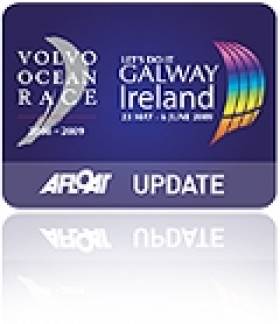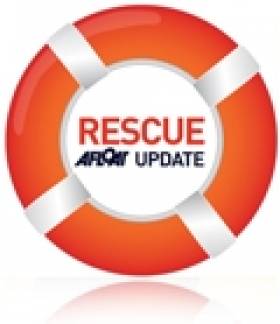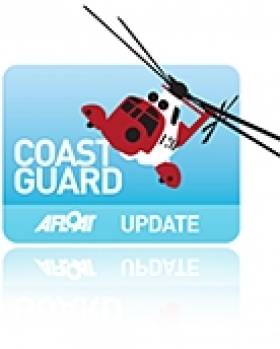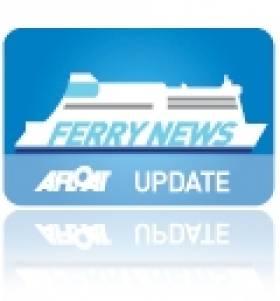Displaying items by tag: RAF
No Red Arrows for VOR Galway
#VOLVO OCEAN RACE - Red Arrow jets will not be returning to the skies over Galway Bay when it hosts the Volvo Ocean Race finale this summer, the Galway Sentinel reports.
The Royal Air Force (RAF) has turned down a request by event organisers to bring its aerobatic display to the City of the Tribes citing 'operational reasons'.
It is understood that the RAF is reducing the number of Red Arrows performances this year due to a shortage of pilots trained to do air displays.
The Red Arrows flyover was one of the highlights of Galway's 2009 hosting of the yacht race.
However, their proposed return was opposed by anti-war campaigners the Galway Alliance Against War, who issued a statement last week declaring the the RAF and another "war outfit" were lined up as entertainment for the race week.
The Galway Sentinel has more on the story HERE.
Search Scaled Down for Missing Crewman in Irish Sea
#RESCUE - BBC News reports that the search for a cargo ship crewman missing in the Irish Sea has been scaled down.
The 22-year-old from Slovakia was reported missing yesterday morning from the Fehn Sirius, which was en route from Belfast to Portugal, as it headed past Arklow, Co Wicklow.
According to The Irish Times, he was last seen on the cargo ship around 10pm on Monday night as it headed south of the entrance to Strangford Lough.
Lifeboats from Portaferry and Newcastle in Northern Ireland and Arklow joined the search and rescue operation, which was assisted by the RAF helicopter based at Prestwick in Scotland and an Irish Coast Guard helicopter.
However, most rescue services have now been stood down as the Fehn Sirius continues to backtrack in the Irish Sea, with assistance from the Naval Service vessel LE Ciara.
Only three days ago the body of another mariner was recovered from the Irish Sea off the north Dublin coast, more than a month after he went missing.
Russian Ambassador Proposes Reward for Swanland Rescuers
#COASTGUARD - Russia's ambassador to Britain has proposed rewarding rescuers involved in the search for missing seamen in the Irish Sea last week following the sinking of the cargo ship Swanland.
As previously reported on Afloat.ie, the cargo vessel - carrying 3,000 tonnes of limestone - went down some 10 miles west of the Lleyn peninsula in north Wales in the early hours of last Sunday.
Two of the eight crew, who were all Russian, were recovered from the sea. A third was found deceased, while the remaining five are still missing.
As many as 11 coastguard rescue teams were involved in the search operation, which also saw an RAF rescue helicopter - piloted by Prince William - lend assistance.
At a meeting with the two rescued sailors in London last Wednesday, Ambassador Alexander Yakovenko commented: “What if we propose [the rescuers] to be rewarded by the Russian side?”
Russian news agency RIA Novosti has more on the story HERE.
Celtic Link Ferries First Ferry Goes to the Breakers
Launched as the Stena Tranporter, the career of the 16,000 tonnes has spanned over three decades in which the 151m vessel changed through several owners and subsequent vessel renamings.
It was when she served under the name Baltic Ferry, that her most notable career took place in 1982 during her wartime deployment as part of the
Falklands Islands Task Force. The 151m vessel was requisitioned by the British Ministry of Defence which saw the ship engaged in military operations when RAF Harrier Jump-Jet aircraft transferred store supplies from the deck of the ship as part of the war-effort in the South Atlantic Ocean.
In 2001 the vessel undertook ferry operations to Ireland as the European Diplomat on the Dublin-Liverpool route for the P&O (Irish Sea) route network. The following year she was transferred on the direct route to France until P&O pulled the plug on the continental service in December 2004, leaving Irish Ferries as the sole operator.
It was not until February 2005 that the route resumed service but this time under new owners Celtic Link Ferries. The O'Flaherty brothers, owners of a large fishing fleet in Kilmore Quay purchased the vessel and renamed her Diplomat. See PHOTO.
For the next four years she built up a steady customer loyalty between freight-hauliers drivers and car-only accompanying passengers who were accommodated in the ship which had a limited passenger certificate for 114 passengers. In addition she had a license to transport livestock.
Currently Celtic Link Ferries operate the ferry Norman Voyager but the 800-passenger / 200-car ro-pax vessel will only remain on the route until an October debut of a larger sistership the Cartour Beta.
The vessel is running this season between Italy and Sicily and with an added deck the 27,552 tonnes vessel has an increased capacity for passengers, cars and enhanced range of facilities. Recently the company had run a competition to name the new vessel which is to begin a five-year charter on the service between Wexford and Normandy.
- Wexford
- irish sea
- Diplomat
- Celtic Link Ferries
- Kilmore Quay
- Stena Rederi
- Marine Express
- RosslareCherbourg
- Norman Voyager
- Ports and Shipping News
- Normandy
- RoPax
- DublinLiverpool
- P&O (Irish Sea)
- Ferry news
- Cartour Beta
- Irish Sea Ferries
- Stena Transporter
- Baltic Ferry
- European Diplomat
- O'Flaherty Brothers
- Falklands Islands Task Force
- Hyundai Heavy Industries
- Freighthauliers
- Livestock
- RAF
- Harrier JumpJets



























































